Anita K. Boyle
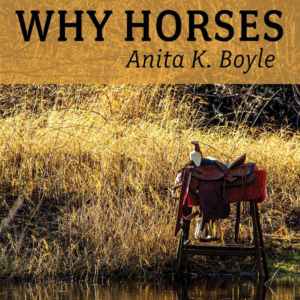 Anita K. Boyle is an artist and poet, the author of several books of poetry, including the one in my hands this morning: Why Horses (MoonPath Press 2020).
Anita K. Boyle is an artist and poet, the author of several books of poetry, including the one in my hands this morning: Why Horses (MoonPath Press 2020).
If you don’t already know Anita through her Egress Studio, “where inspiration becomes tangible,” you should hop over to the website immediately. (Tours of the actual studio are available.) Definitely browse her books page, but also the blog which at present features the reproduction of a cookbook used by homesteaders on the Olympic Peninsula. The photos on this website, book covers, descriptions of ponds and handmade papers are well worth a long visit.
Briefly, Why Horses is Anita’s second MoonPath Press book, after What the Alder Told Me (2011). Earlier books are Bamboo Equals Loon, Sanctuary Poems, and The Drenched. She has also written several collaborative poetry chapbooks with her partner, James Bertolino.
I asked Anita if she could share her process in assembling a poetry book. Specifically, I asked if she imagines the book’s theme or title and writes into that, or do the poems come first?
The easy answer is the poems come first. Often a poem is written as a one-off, and isn’t directed by any other poem. But just as often, I write poems that refer to themes, or are addressing content from other poems.
When I gather the poems together, it’s like weaving, sometimes as a story progression or a collection of similar themes. Arranging a book works best if the poems have a theme of some sort that runs through them, even loosely. I mention weaving because the texture and color of the poems matter, too, and I think that may be why my latest book became longer than planned. A few of those poems were written many years ago and ended up sitting next to a much newer one. Locating similarity through contrast creates a kind of music, and can potentially end up as a really good book. The transition from writing a poem to the poem being part of a greater whole is intriguing. One poem here instead of there can change a whole book sometimes.
As a publisher, I enjoy a book manuscript with surprising twists in it, one with poems I can see as I read them, and one whose poems support a trajectory from the opening poem to the final stanza of the last poem. The arrangement counts on those. Currently, I’m not doing any publishing in the foreseeable future, and when/if I do that again, it may be in a different form than I was doing before.
Because I’m in the middle of pulling together my own poetry manuscript (and helping with a couple others), I also asked her how she knows when a book is “done.”
As an artist and a poet, I am absolutely positive that no piece of art anywhere is ever “done.” But we all ask that question. I would guess that even Michelangelo may have walked past his famous sculpture David, and thought about making a little change here and there. But you do reach a point of satisfaction that becomes the finishing point. Is it easier to know when a book is not done than when it is? Maybe that’s a good test. As a publisher, I’d suggest that a poet should put together a manuscript until they think they have it right. And then ask another poet, that he or she respects, to read the entire manuscript. Any comments made by that other person are worthwhile considering, whether notes on typos, comments on order, or practically anything. See what happens when you follow the direction of others, but don’t necessarily accept them as final. Sometimes, a minuscule revision can greatly enhance an area that once stuck out enough to be commented on.
I knew a little about Anita’s writing group, and asked her to tell me more:
It’s a privilege to be part of my writing group of five: James Bertolino, Judy Kleinberg, Jeanne Yeasting, Jennifer Bullis, and myself. We’ve met for well over ten years, and must have written far more than a hundred poems in that time. I also am part of an art group of thirteen women, where we share our projects, plans for the future, techniques, and other information. One of the best ways to refine your art as it nears “completion” is to hear what other people have to say about it, which makes a writers (or art) group crucial to the creative process. Whether a poem or a painting, sometimes, the intent of the artwork may seem completely lost on others. Of course, complete clarity isn’t always necessary in a work. But often there’s a little detail, a word or a line break, a comma, that can be adjusted to make all the difference, or a rearrangement, or a division, or some other suggestion from the group that will truly improve the poem. This can be cathartic!
I condensed a bit from Anita’s generous response, but wanted to draw out and emphasize one line that especially spoke to me:
One thing to remember about poetry (and all art) is that readers are experiencing the words we translate from our own imaginations, and to hear their immediate and thoughtful responses is no small gift.
Why Horses, itself, is “no small gift,” but a bounty of poems. Many of them are about nature—ponds and owls, mosquitos and horses (of course)—and also about Anita’s childhood, “hard, dark pews,” sunburns and fifth grade teachers. In a short poem, “Arguing with Rumi,” she writes: “The soul is a heavy river, / a wide and muddy river”–and concludes her argument: “But the soul working, / and working, / with elation and deep sorrow, / becoming its own truth.” This is a book filled with such truths.
Here’s one poem, just to whet your appetite:
There Are Horses in Heaven
This is a secret you mustn’t repeat:
There are horses in heaven.They have been there always.
Even while here, they are aware of there.Have you noticed how the horse
sleeps upright and ready, and seemsto be elsewhere? There are horses
in heaven who feast upon the golden sheaves.They come to earth on the darkest nights:
The flapping of wings hushed like the owls’.They stay with us, as though held in a palm:
think of a roughened hand curled around the reins.They sometimes grant us wishes. They
relieve us of labor and sorrow. The horsewas in heaven before Adam met Eve.
When these firsts were evicted from the garden,a horse took them to another.
The horse lives in heavenwherever she goes. This is
confidential and true.—Anita K. Boyle


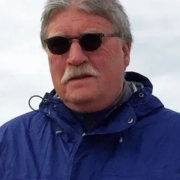
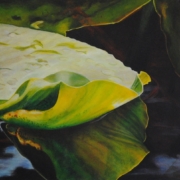
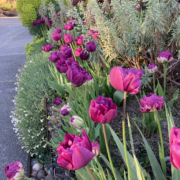
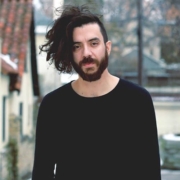
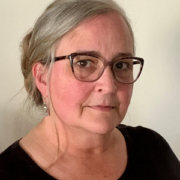
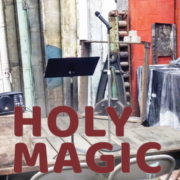
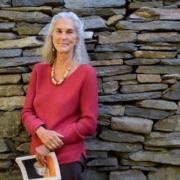
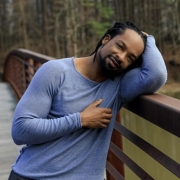


Trackbacks & Pingbacks
[…] cover and writing a “real” blog post, to share these reading announcements from both Anita K. Boyle and David D. […]
Leave a Reply
Want to join the discussion?Feel free to contribute!